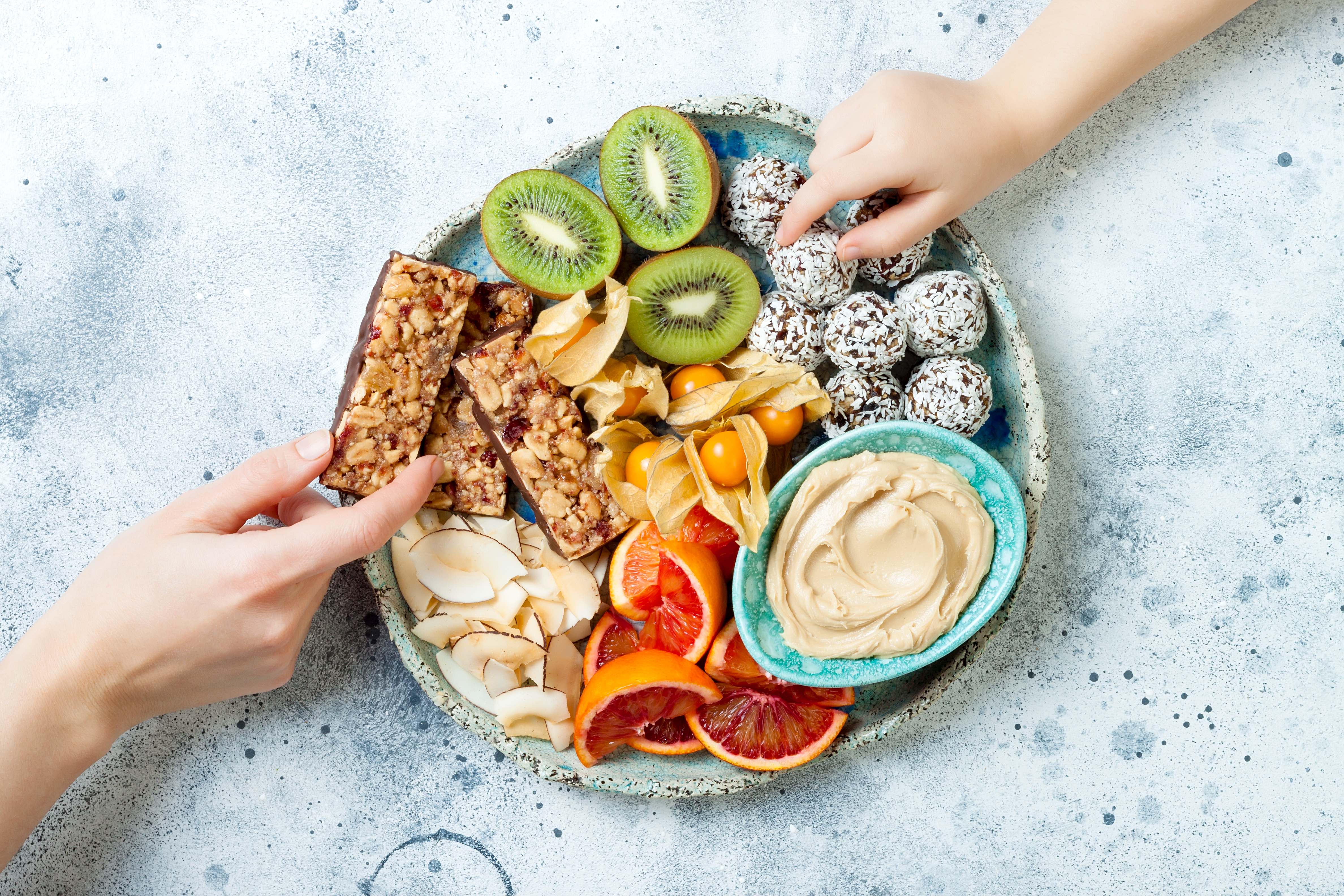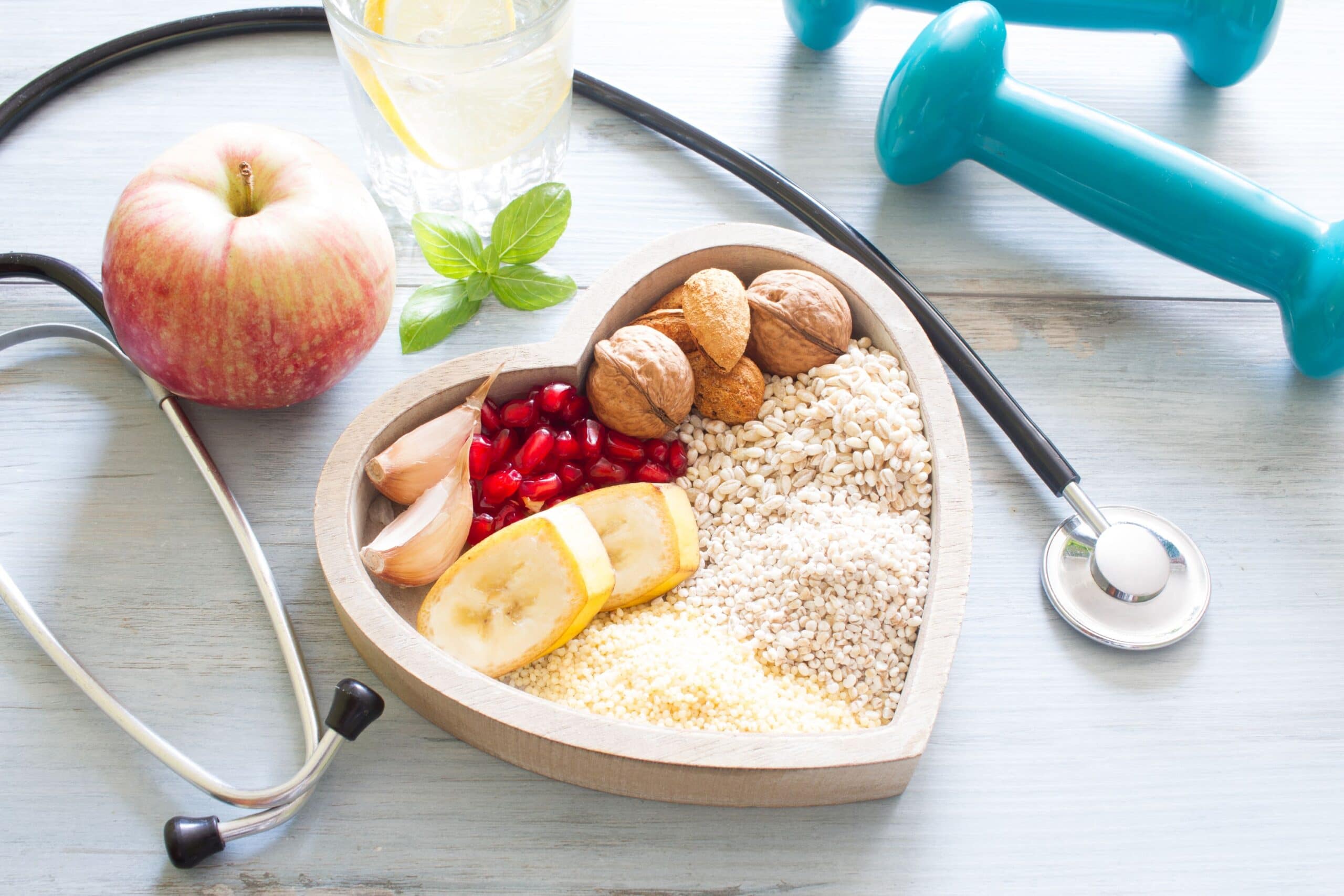We might hear a lot about cholesterol – but do you actually know what it means, and whether yours might be a problem?
High cholesterol is a lot more common than we might think, affecting over half of UK adults, yet many are completely unaware of the main risk factors.
It’s tricky to spot early warning signs, as high cholesterol itself doesn’t typically cause noticeable symptoms – but it’s linked with an increased risk of a number of major diseases, like heart disease, so it pays to know if your levels are potentially a cause for concern.
What is cholesterol?
Cholesterol is a fatty substance that’s found naturally in the blood. Although we need a certain amount to function, there are different types of cholesterol – LDL (or ‘bad’ cholesterol) and HDL (or ‘good’ cholesterol). It only really becomes a problem when our levels of LDL cholesterol are too high.
Our cholesterol levels are measured with a simple blood test. LDL (low-density lipoprotein) is a worry for many people as if there’s too much, it can slowly build up in your artery walls, making it difficult for blood to flow through. This makes you more likely to develop heart problems or suffer a stroke.
It’s always advisable to get your cholesterol checked by your GP, especially if high cholesterol runs in your family. In some cases, medications may be advised, but lifestyle measures also play an important role in maintaining healthy cholesterol levels.
Here are seven healthy lifestyle measures that can help keep your cholesterol in check…
1. Opt for healthy snacks when feeling peckish
If your GP has advised you to change your diet to reduce your blood cholesterol, one of the most important things can be cutting down on saturated fat. Rich foods, like fatty cuts of meat, cream, hard cheese, butter and chocolate, cakes and pastries can all add to your daily saturated fat count.

“Try making healthier foods more noticeable, visible and accessible in your cupboards and fridge,” suggests registered dietitian, Corrine Toyn, speaking on behalf of Benecol (benecol.co.uk). “We eat with our eyes first, so keep fruit and veg at eye level, and try to hide the sweet treats that will tempt you in an opaque container, out of reach at the back of the cupboard.”
2. Have a daily walk
Leaving the house for some fresh air during the day isn’t just vital for your mental health, staying active can help keep cholesterol levels in check too.
“Exercise has a whole host of benefits for your mental and physical health – including improving your ‘good’ HDL cholesterol level,” says Toyn. “It’s recommended that healthy adults do at least 150 minutes of moderate activity, such as brisk walking, or 75 minutes of vigorous activity a week, like jogging or playing a sport.”

Toyn says adults should also try to include muscle strengthening activities into their weekly routine too, like lifting weights, or even something as simple as gardening.
“Try to be active every day to reduce the amount of time spent sitting while working from home. You should really aim to stand up every hour or so, and move around to break up periods of inactivity,” Toyn adds.
3. Cut down on booze
With all the bad news that’s swilling around, it’s tempting to rely on alcohol, but regular binge-drinking can put you at risk of both high blood pressure and high cholesterol.
“Drinking alcohol can raise cholesterol levels in the blood, so make 2021 your year to take part in a dry month,” says Toyn. “When your triglyceride levels [fatty acids] become too high, they can build up in the liver, causing fatty liver disease. The liver can’t work as well as it should and can’t remove cholesterol from your blood, so your cholesterol levels rise.”
If you don’t want to miss out on Friday-night Zoom drinks, Toyn recommends swapping every other alcoholic drink for a non-alcoholic beverage, to bring those units down.
4. Maintain a healthy weight
“It’s no surprise many of us [have] put on a few extra pounds around the lockdown New Year period. But carrying a few extra pounds can contribute to high cholesterol,” says Toyn. “Making a few small changes to your diet and lifestyle can really make a difference. In fact, losing just 10% of your body weight will lower your cholesterol and triglyceride levels, your blood pressure and your risk of diabetes.”
5. Load up on legumes
There’s no two ways about it – eating a healthy diet can really make a difference when it comes to your health.
Dr Sarah Brewer, medical director for Healthspan (healthspan.com), says we should particularly prioritise legumes, oats, grapes and soy foods, as these contain a lots of fibre.
“Fibre can bind with cholesterol in the gut and prevent its absorption,” explains Brewer. “In particular, a large review of research showed that eating 100g of legumes daily could help to lower non-HDL cholesterol by an average 6.6mg/dl compared to those who did not eat them.”
Legumes, like chickpeas and lentils, are really versatile; chuck them into soups, salads and one-pot dishes such as stews, curries and casseroles. You can even opt for canned varieties to save time in the kitchen.
6. Switch up your cooking oils
Something as simple as throwing a knob of butter into your pans on a regular basis could have an effect on your cholesterol. Try switching out the animal fats and oils for olive oil and seed based oils instead.
7. Quit smoking for good
When it comes to cholesterol, it’s not all about diet and regular exercise – it’s also about what goes into our lungs. “Stopping smoking improves your HDL cholesterol level and within just 20 minutes of quitting, your blood pressure and heart rate recovers from the cigarette-induced spike,” says Toyn.
Within three months of quitting, Toyn says your lung function and blood circulation begins to improve – and within a year, your risk of heart disease is half that of a smoker.
There’s no better time to take action. Speak to your GP who can refer you to a local stop smoking service.





